Differences Between Western and Eastern cultures
- Different approaches to resolving controversial situations.
- A propensity to preserve traditional customs in the East, in particular, Japan (Moran, Abramson, & Moran, 2014).
- Particularism in the East (particular rules correspond to the individual relationship) (Neuliep, 2017).
- Universalistic orientation in the West (equal attitude to others regardless of people’s status) (Neuliep, 2017).
- Different manners and habits of communication.
- The focus on interlocutors is stronger in the Eastern cultures.
Western and Eastern cultures differ from the point of view of resolving conflict situations and approaches to interlocutors. Particularism is typical for the Eastern people, and universalism is the feature of the Western ones. Different traits and habits of behavior affect the relationship.
View objectives: the aim of the study is to describe the challenges that can arise during communication with the Eastern people and to find the solution to these challenges. As a rationale to prove and confirm some theories and ideas, the works of other authors will be used. A personal approach and respect for the traditions of the Eastern people are indispensable conditions for successful direct interaction and dialogues via modern means of communication.
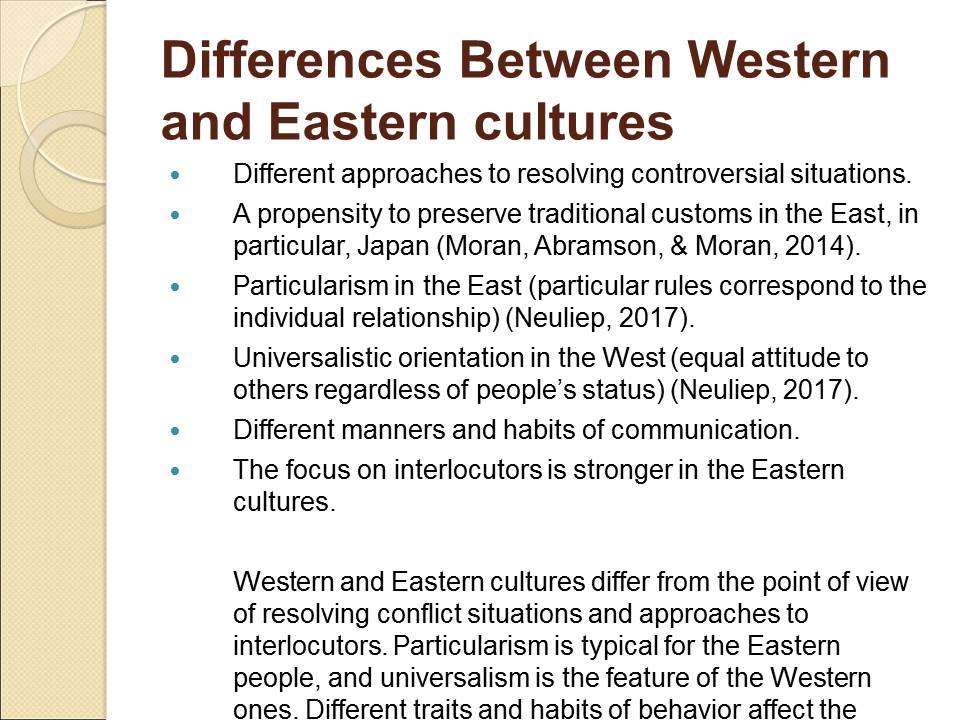
Challenges in Communicating with the Eastern People
- Particular attention is paid to greetings as a form of respect.
- Different approaches to defining the essence of the problem.
- The need to observe behavioral norms typical for the East.
- An emphasis on the importance of the interlocutor’s role.
- The absence of direct requests and statements.
- Partially a language barrier in communication.
In the Eastern cultures, the observance of certain behavior towards the interlocutor is welcomed. A special approach to details is essential: greetings as a sign of respect, a special ceremony of acquaintance, the lack of direct requests, etc. In the process of communication, there may be misunderstandings caused be different ways of solving problems or because of diverse views on the same situation.
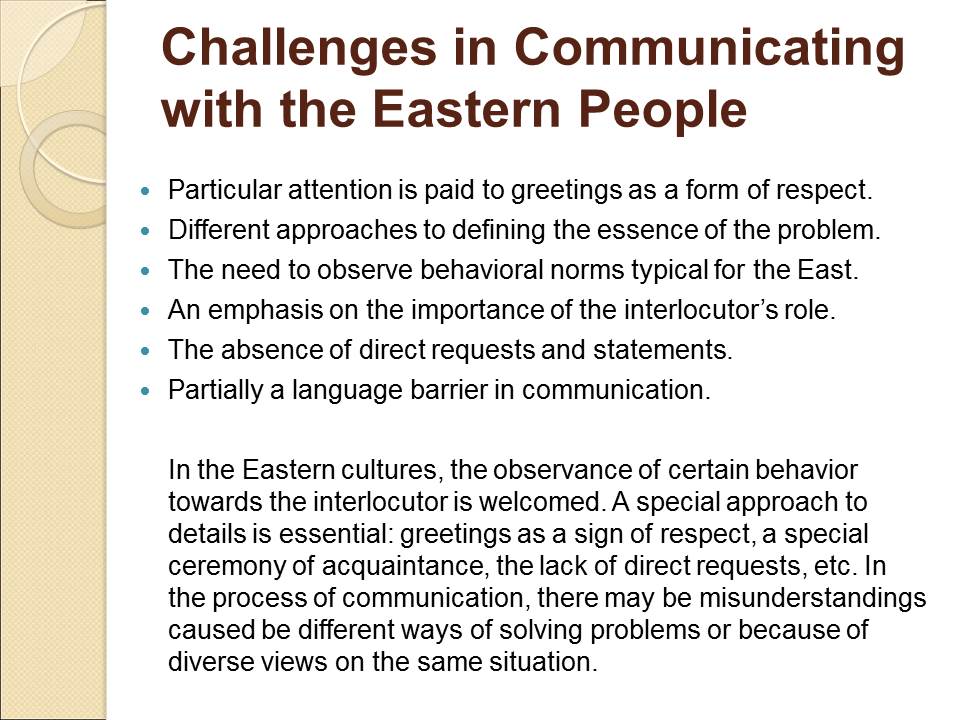
Dialogues via Modern Means of Communication
- Too long ceremonies when communicating through modern means of communication.
- The misunderstanding caused by language difficulties.
- A leisurely solution of issues by the Japanese.
- Pauses and silence are typical for the Eastern people (Hall, Covarrubias, & Kirschbaum, 2018).
- Telephone conversations complicate the communication process since the voice is the only verbal mechanism.
- Group communication with people from Japan is more complicated because of the need to comply with conventions.
Modern means of communication make the communication process convenient. Nevertheless, some difficulties during the interaction between Japanese and Western people can arise. Thus, some conventions associated with leisurely behavior and a language barrier can manifest themselves.
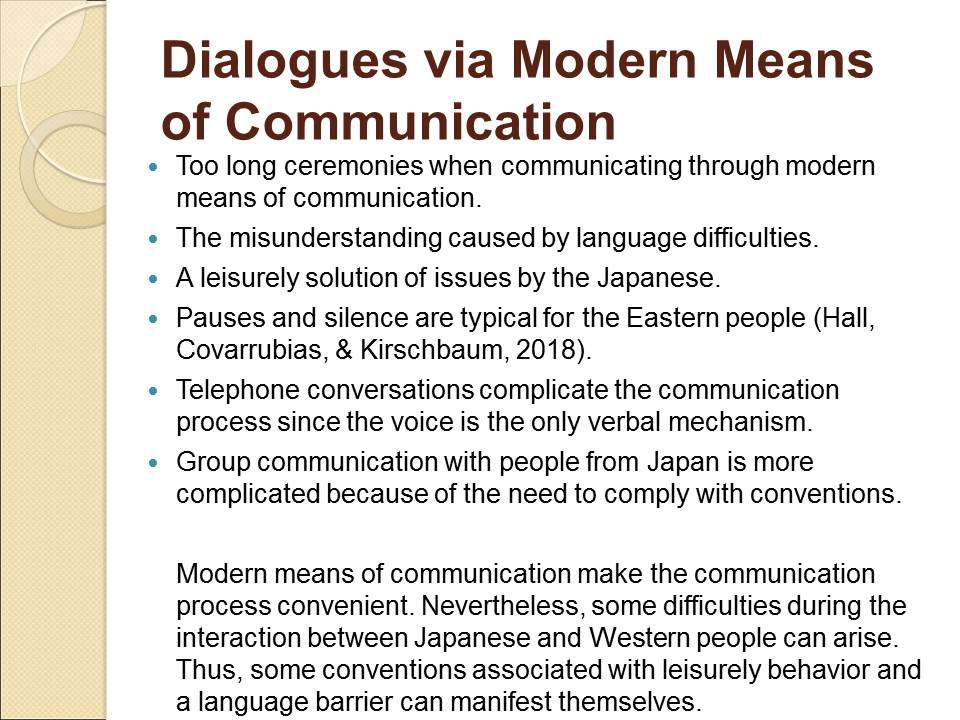
Possible Ways to Solve the Existing Challenges
- The interlocutor’s traditions should be respected.
- Disrespect for the customs of other cultures’ representatives is the violation of ethical behavioral norms.
- A language barrier is not a problem in a leisurely conversation.
- The use of modern communicational means implies full attention.
- The analysis of the interlocutor’s behavior allows observing all the conditions.
- Sincerity is one of the significant qualities appreciated by the Eastern people (Neuliep, 2017).
Respect is one of the primary features that should be observed when communicating with the Eastern people. A leisurely conversation will contribute to a better understanding of the meaning. Attention to the interlocutor is one of the keys to a successful dialogue.
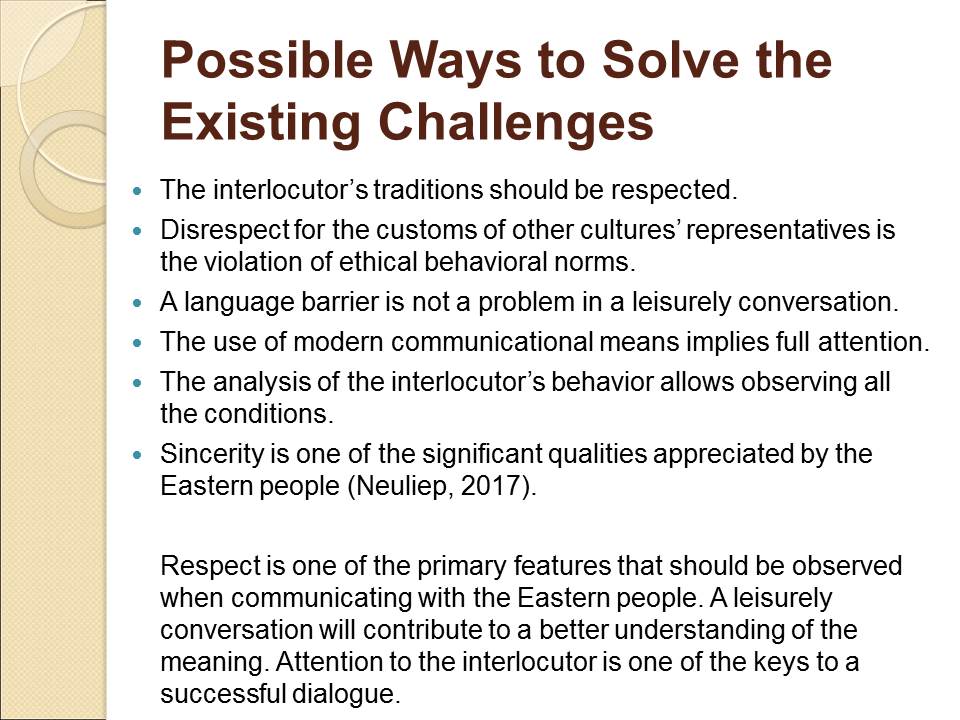
A Personal Approach to Solving the Challenges
- “The management of conflicts is a major issue at the personal and organizational levels” (Moran et al., 2014, p. 88).
- The solution of any questions can be conducted while taking into account the individual characteristics of the interlocutor.
- The observance of the traditions of communication is not a prerequisite, but it is welcomed.
- Taking into account the personal identity of the speaker is one of the keys to successful problems solving.
- Communication in a foreign language can be a stress for one of the parties of the dialogue.
- Too intimate topics are not typical (Neuliep, 2017).
A personal approach when communicating with Eastern people is a prerequisite for a successful conversation. Too intimate topics are unacceptable. Accounting for the personal characteristics of the interlocutor is an inalienable component of polite communication.
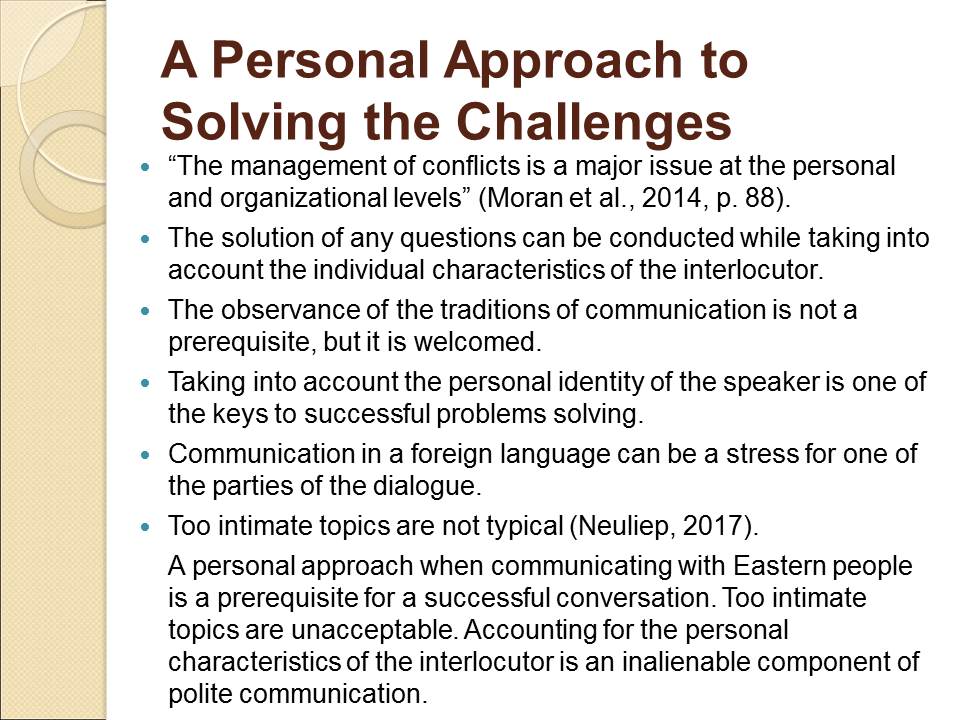
Preparing for a Conversation
- The topic and subject of communication should be familiar.
- The acquaintance with the interlocutor is mandatory.
- Personal information may not be disclosed, but it is not a prerequisite.
- The conversation should be based on mutual respect.
- Inconvenient questions and topic are better to avoid.
- The manners of the interlocutor’s behavior should be considered for better interaction.
The manifestation of respect is one of the central features of a successful dialogue with the Eastern people, in particular, the Japanese. When preparing for a personal conversation or negotiations on electronic communication, it is desirable to be familiar with the subject of the dialogues and to respect one interlocutor or a group of people. A personal approach is the key to success.
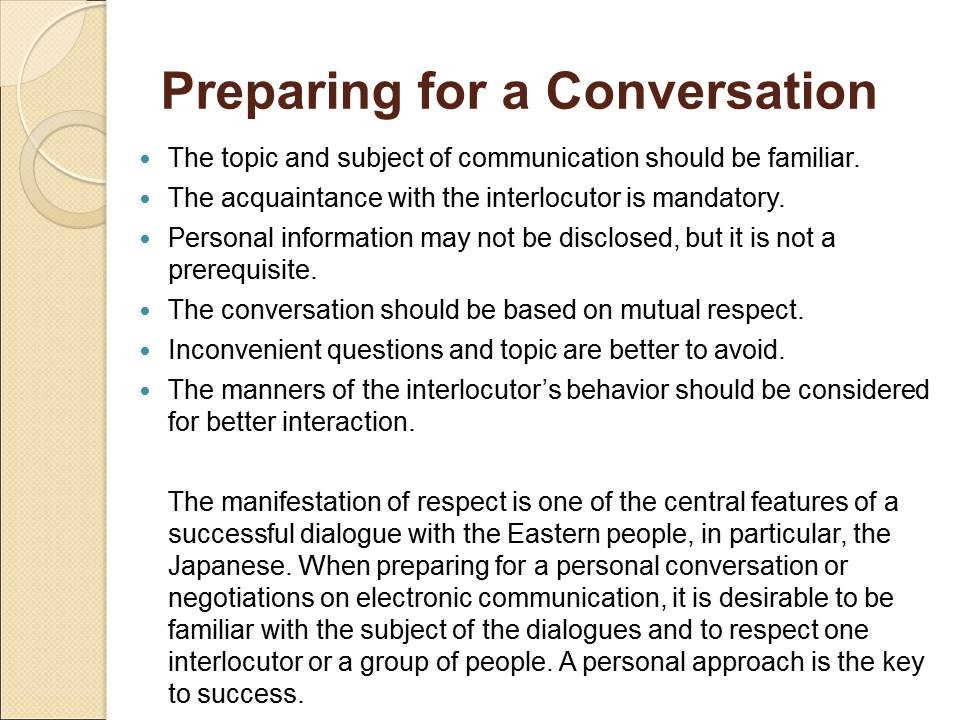
References
Hall, B. J., Covarrubias, P. O., & Kirschbaum, K. A. (2018). Amongcultures: Thechallengeofcommunication (3rd ed.). New York, NY: Routledge.
Moran, R. T., Abramson, N. R., & Moran, S. V. (2014). Managingculturaldifferences (9th ed.). New York, NY: Routledge.
Neuliep, J. W. (2017). Interculturalcommunication: A contextualapproach (7th ed.). Thousand Oaks, CA: Sage Publications.